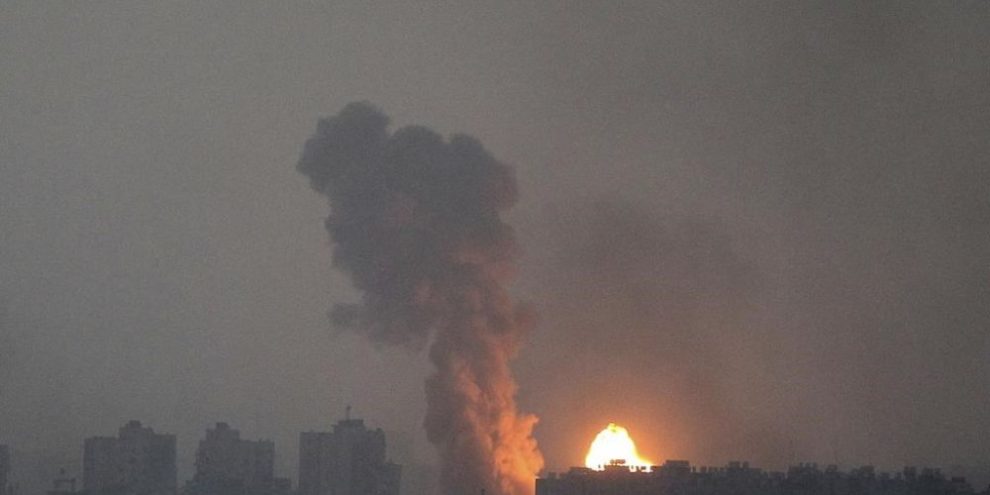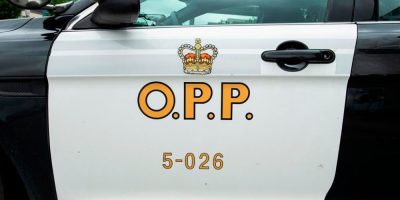
Jacob Serebrin, The Canadian Press
Moayed Salim expected his father to come home to Canada at the end of the month in time for the birth of his son. Instead, the London, Ont. resident said his 66-year-old father is stuck in Gaza and there's no way to know if he is alive or dead amid a telephone and internet blackout.
"It's devastating, it's hard to focus on anything," Salim said in an interview Saturday. "My wife, she's almost in labour, her entire family's in Gaza, so you can imagine the amount of emotion, the pain, the confusion."
Israel launched an expanded ground operation in the enclave on Saturday, while stepped-up bombardments knocked out telecom services to most of the Gaza Strip's 2.3 million residents and created a near-blackout of information in the area. Israeli Prime Minister Benjamin Netanyahu delivered an address to the nation on Saturday evening, saying the latest actions marked a new phase in the country's war with Hamas, the governing body in Gaza that was behind a brutal Oct. 7 incursion into Israel that saw more than 1,400 people killed and at least 200 others taken hostage.
Salim, who grew up in Canada and whose father is a Canadian citizen, said his relatives have accepted that nowhere in Gaza is safe.
"My father has come to terms, my wife's family has come to terms with the reality that there's a very good chance they will not make it and they've tried to comfort us, when we should be comforting them," he said.
He said he feels guilty eating meals and drinking water, knowing that essential supplies are limited in Gaza.
"You'll find maybe one bakery open for an entire neighbourhood and then that baker will be bombed," he said. "If you want to take out Hamas, OK. But preventing civilians from getting a loaf of bread, I don't understand how that's going to achieve your objective."
Mansour Shouman, who lived in Canada for more than a decade and became a citizen in 2006 before moving to Gaza three years ago, said he has witnessed signs of Israel's escalating military offensive. He said it seems like more bombs are falling and are striking without warning.
"I feel like they are indiscriminate," he said of the Israeli Defence Forces, an allegation the country's military has consistently denied.
"The injuries that I see and those who are being killed and the funerals that are happening are mostly, 70 per cent, women and children," he said in an interview from southern Gaza Saturday.
He said his family was sheltering in an apartment with eight other families when the area was bombed, destroying several buildings. He and his relatives escaped with only minor injuries.
His wife has lost family members, he said, while others are unreachable and their status is unknown.
Even in the south, where Israel has encouraged Palestinians to flee, Shouman said the situation is dire because of the number of refugees.
"There is a lack of food, a lack of water, a lack of fuel," he said, adding many fled their homes with few clothes and may not be prepared for the coming winter.
He said he'd like to see a ceasefire that would allow injured people to access medical care outside the territory and permit food, water and fuel to be brought in.
He said the vast majority of Palestinians were shocked by Hamas' Oct. 7 attack on Israel, but added that the conflict did not begin this month.
In his televised address, Netanyahu said the war has entered a new phase as ground forces enter Gaza amid expanded attacks from the ground, air and sea
"This is the second stage of the war, whose objectives are clear: To destroy the military and governmental capabilities of Hamas and bring the hostages home,'' he said.
The military released grainy images Saturday showing tank columns moving slowly in open areas of Gaza, many apparently near the border, and said warplanes bombed dozens of Hamas tunnels and underground bunkers. The underground sites are a key target in Israel’s campaign to crush Hamas, which Canada has long classified as a terrorist organization.
The escalation brought more domestic pressure on Israel's government to bring about the release of the hostages amid concerns they were being held underground.
Netanyahu told the nationally televised news conference that Israel is determined to bring back all the hostages, and maintained that the expanding ground operation “will help us in this mission.”
Meanwhile, in Toronto, thousands of protestors gathered at Nathan Phillips Square in the downtown core, waving Palestinian flags and calling for a ceasefire in Gaza.
Waqas Ali said he joined the protest to show solidarity with Palestinian people after the Canadian government abstained from voting for a United Nations General Assembly resolution that passed on Friday.
It called for an “immediate, durable and sustained humanitarian truce" in the region, but did not mention Hamas, its attacks or its tactics. Bob Rae, Canada's permanent UN envoy, introduced an amendment that "unequivocally rejects and condemns" the attacks while demanding the "immediate and unconditional" safe release of all hostages. The amendment was ultimately defeated and Canada abstained from casting a vote on the resolution's final wording.
"There are kids, babies being killed over there," he said. "Had it been one of our own children we would not abstain, but we completely have. So that's shameful."
Yaseen Steitieh said he was born in Toronto to a Palestinian family and has extended family members living in Gaza.
"Our demand is simple: right now we want the ceasing of bombs, carpet bombing of civilian population."
The Palestinian death toll in Gaza on Saturday rose to just over 7,700 people in the three weeks since the war began, with 377 deaths reported since late Friday, according to the Gaza Health Ministry. A majority of those killed have been women and minors, the ministry said.
For Salim, the people of Palestine are facing collective punishment for the "crime" of living under Hamas rule.
"The Canadian government considers Hamas a terrorist organization, which is fine," Salim said. "But don't forget there are two million civilians that live in Gaza and Hamas does not represent them."
banner image: The Canadian Press





